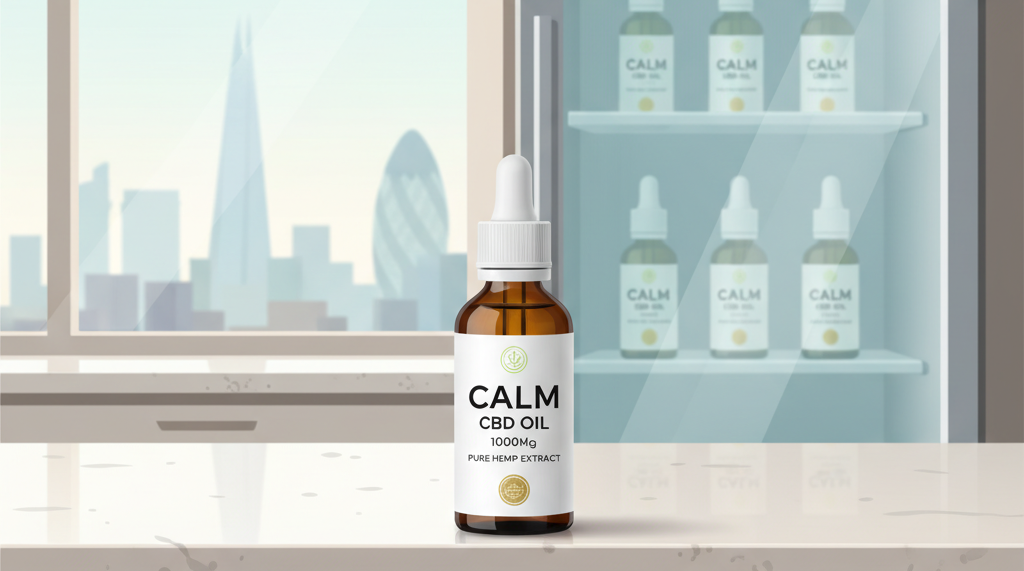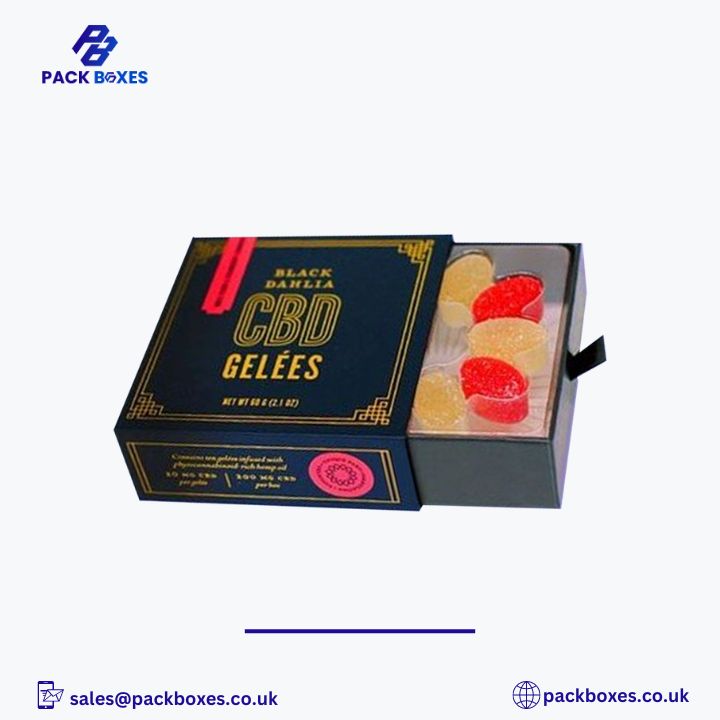CBD oil has quickly become a staple in many households in London, UK, thanks to its potential wellness benefits. From relieving stress and anxiety to supporting joint health and sleep, CBD oil has earned a reputation as a versatile supplement. However, there’s still a lot of confusion surrounding its proper storage. One common question that many users ask is: “Should you put CBD oil in the fridge?”
Proper storage is crucial to maintaining the quality, potency, and shelf life of CBD oil. Understanding how to store it, including whether refrigeration is necessary, can ensure that you get the maximum benefits from your product. This article will explore everything you need to know about storing CBD oil, with a focus on the role of temperature, light, and CBD Oil Packaging in preserving quality.
Why Proper Storage of CBD Oil Matters
CBD oil is delicate and can be affected by environmental factors such as heat, light, and air. Poor storage can lead to:
- Reduced potency: Cannabinoids like CBD can degrade over time if exposed to adverse conditions.
- Change in flavor: Improper storage can cause the oil to taste bitter or rancid.
- Shortened shelf life: Exposure to heat or light accelerates the breakdown of natural oils in CBD.
Because of these reasons, proper storage practices are critical. Choosing the right container and storage environment ensures your CBD oil maintains its therapeutic benefits for as long as possible.
The Ideal Temperature for Storing CBD Oil
The ideal temperature for storing CBD oil is generally between 15°C and 25°C (59°F and 77°F). This is considered room temperature and is suitable for most oils. Storing CBD oil in extreme heat or direct sunlight can degrade its cannabinoids and terpenes, reducing its effectiveness.
Refrigeration is often considered, especially for those living in hotter climates or in homes where temperatures fluctuate. While storing CBD oil in the fridge is not strictly necessary, it can provide certain benefits:
- Slows oxidation: Cooler temperatures can help prevent the breakdown of cannabinoids and terpenes.
- Extends shelf life: Refrigeration can help maintain potency for longer periods.
- Reduces oil separation: Some CBD oils, especially full-spectrum oils, may separate over time. Cooling can minimize this.
However, refrigeration may also have drawbacks. Cold temperatures can sometimes cause the oil to thicken or become cloudy. While this does not harm the oil, it may make it slightly harder to use.
Does Light Affect CBD Oil?
Light is another critical factor that affects CBD oil quality. UV rays can break down cannabinoids, leading to a loss of potency and flavor. For this reason, most high-quality CBD oils come in dark amber or opaque bottles.
This is where CBD Oil Packaging becomes essential. Packaging should protect the oil from light exposure while minimizing air contact. Glass bottles are preferred over plastic, as they do not leach chemicals and provide better protection against oxidation.
How CBD Oil Packaging Helps Preserve Quality
When storing CBD oil, the packaging plays a critical role. Proper CBD Oil Packaging should include:
- Dark-colored glass bottles: Amber or cobalt blue bottles block out light and prevent oxidation.
- Air-tight seals: These prevent air from entering the bottle, which can degrade cannabinoids.
- Dropper tops or pumps: This reduces exposure to air every time you use the oil.
- Proper labeling: Includes batch number, expiration date, and storage instructions.
High-quality CBD Oil Packaging not only protects the oil but also gives users peace of mind regarding the authenticity and safety of the product.
Storing CBD Oil at Room Temperature
Most CBD oils are formulated to be stable at room temperature. Storing your CBD oil in a cool, dark cupboard or pantry is usually sufficient. Ideal conditions include:
- Away from heat sources: Keep oil away from stoves, ovens, or radiators.
- Avoiding sunlight: Do not store bottles on windowsills or in direct sunlight.
- Stable temperatures: Avoid areas that experience temperature swings.
Room temperature storage is convenient for daily use and prevents the oil from becoming too thick. However, if you live in a warmer climate or if your home gets very hot during summer months, refrigeration may be advisable.
Should You Put CBD Oil in the Fridge?
Putting CBD oil in the fridge is optional but can be beneficial under certain circumstances:
- Hot climates: If you live in London, UK, summer temperatures are moderate, so room temperature is usually fine. However, refrigeration can still help extend shelf life.
- Long-term storage: If you don’t plan to use the oil quickly, the fridge helps maintain potency.
- Full-spectrum oils: Oils with natural fats and plant compounds can benefit from cooler storage to prevent separation or cloudiness.
Important tip: Always ensure that your CBD oil bottle is tightly sealed before refrigeration. Exposure to moisture inside the fridge can negatively affect the oil’s consistency and quality.
Other Storage Considerations
Avoid Freezing CBD Oil
Some users assume that freezing is a better option than refrigeration. However, freezing CBD oil is generally not recommended. Extreme cold can cause the oil to solidify and change texture, making it difficult to use. Repeated freezing and thawing may also damage the delicate cannabinoids.
Keep Away from Moisture
CBD oil should never be exposed to high humidity. Bathrooms and kitchens are not ideal storage locations because steam and humidity can degrade the oil and affect its consistency.
Keep Out of Reach of Children
Like any supplement, CBD oil should be stored safely out of the reach of children. High-quality CBD Oil Packaging often includes child-proof caps to enhance safety.
Signs Your CBD Oil Has Gone Bad
Even with proper storage, CBD oil can eventually degrade. Watch out for the following signs:
- Change in smell: A rancid or sour odor indicates degradation.
- Change in taste: A bitter or unusual taste may signal that the oil is no longer good.
- Cloudiness or separation: Minor separation is normal, but excessive cloudiness may indicate spoilage.
- Reduced effectiveness: If the oil no longer provides the expected effects, potency may have decreased.
Proper storage in appropriate CBD Oil Packaging and following the tips above will minimize these issues.
Tips for Maintaining CBD Oil Quality
- Keep bottles upright: Avoid tipping bottles, which can cause leaks and oxidation.
- Use a dropper: Measure doses with a dropper to avoid exposing the oil to excess air.
- Store in original packaging: The original bottle is designed to protect the oil from light and air.
- Check expiration dates: CBD oil is best used before its expiration date for maximum potency.
- Avoid metal containers: Metal can react with CBD oil and compromise its quality.
Conclusion
So, should you put CBD oil in the fridge? The answer depends on your lifestyle, climate, and storage needs. For most users in London, UK, storing CBD oil at room temperature in a dark, cool cupboard is sufficient. However, refrigeration can help extend shelf life and maintain potency, especially for full-spectrum oils or long-term storage.
Regardless of storage method, the quality of CBD Oil Packaging plays a critical role in preserving the oil’s integrity. Dark, air-tight glass bottles with secure caps provide the best protection against heat, light, and air exposure. Proper storage ensures that your CBD oil remains effective, safe, and enjoyable for months to come.
Investing in high-quality CBD oil with excellent CBD Oil Packaging is as important as choosing the right storage conditions. By following these guidelines, you can confidently enjoy your CBD oil and reap its potential wellness benefits.
FAQs
1. Can CBD oil go bad if not refrigerated?
Yes, CBD oil can degrade over time if exposed to heat, light, or air, but proper CBD Oil Packaging can help prevent this even at room temperature.
2. Does refrigeration affect CBD oil potency?
Refrigeration can help preserve potency by slowing oxidation, but it may cause the oil to thicken slightly.
3. Can I freeze my CBD oil?
Freezing is not recommended as it can alter texture and may reduce potency if thawed repeatedly.
4. How long does CBD oil last if stored properly?
With proper storage in quality CBD Oil Packaging, CBD oil can last between 12-24 months, depending on the formulation.
5. Should I shake CBD oil before use?
Yes, especially for full-spectrum oils, gentle shaking ensures consistent cannabinoid distribution.
6. Is glass better than plastic for storing CBD oil?
Yes, glass protects the oil from chemicals and oxidation, making it ideal for long-term storage.
7. Can exposure to sunlight ruin CBD oil?
Yes, UV rays can degrade cannabinoids, so dark CBD Oil Packaging is essential.
8. Can CBD oil separate in the fridge?
Some separation may occur, but this does not harm the oil. Shake the bottle before use.
9. Is child-proof packaging necessary for CBD oil?
Yes, it enhances safety by preventing accidental ingestion, especially in households with children.
10. Where is the best place to store CBD oil at home?
A cool, dark cupboard away from heat, light, and humidity is ideal, but refrigeration is optional for extended shelf life.







